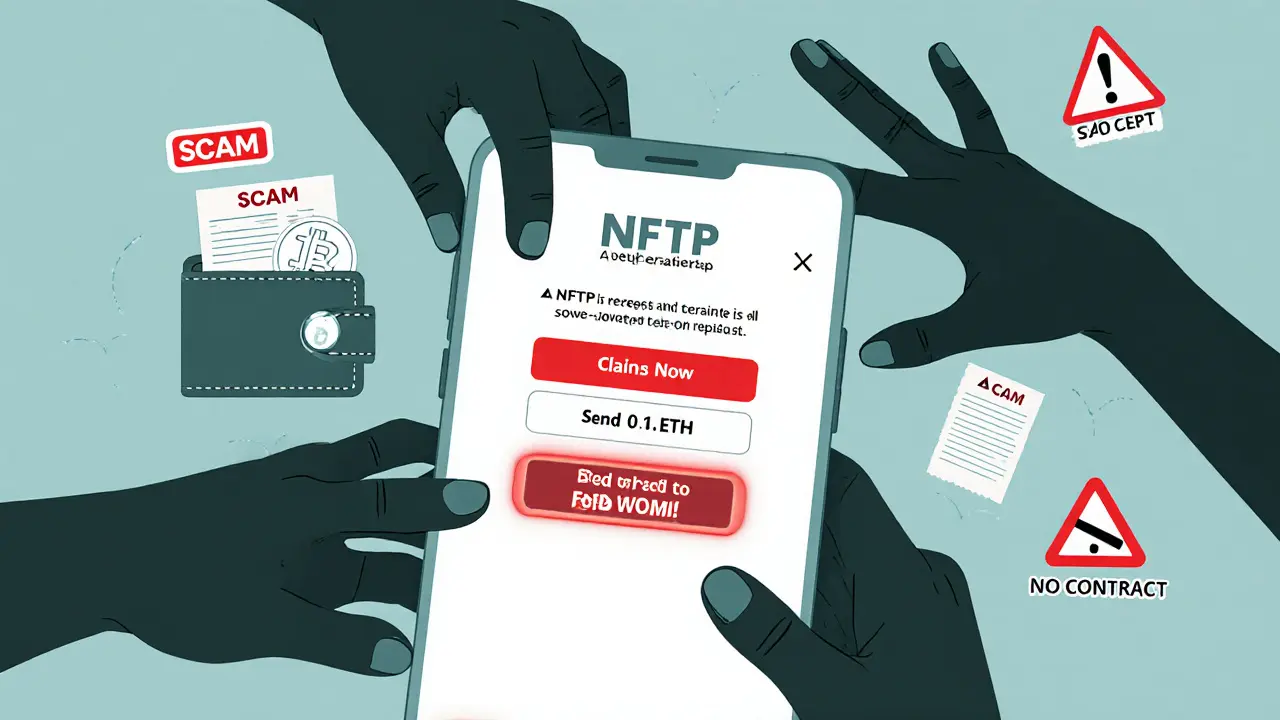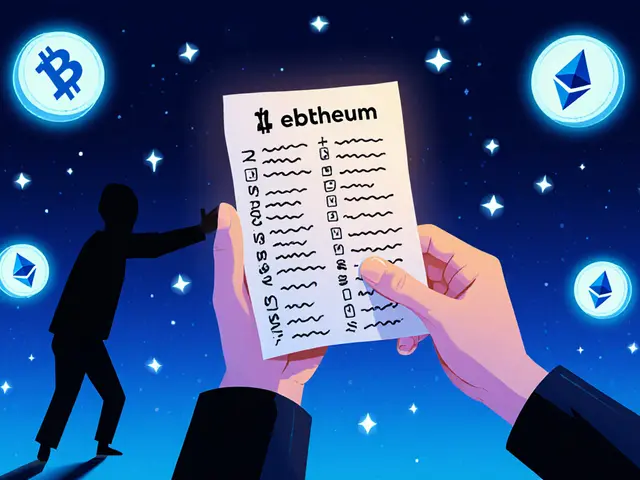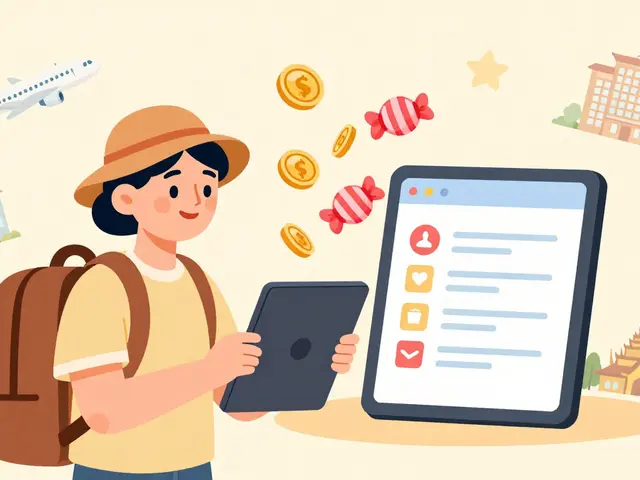If you’ve heard about the NFTP airdrop from NFT TOKEN PILOT and are wondering if it’s real, how to qualify, or whether it’s worth your time-you’re not alone. Right now, there’s no official website, no whitepaper, and no verified social media channels confirming the details. That doesn’t mean it’s a scam-but it does mean you need to be careful. Airdrops can be legitimate ways to get free tokens, but they’re also one of the most common traps for people new to crypto. Here’s what you actually know as of November 2025, what you should look out for, and how to avoid losing money trying to claim something that might not exist.
What Is NFTP Anyway?
NFTP stands for NFT TOKEN PILOT, and according to scattered mentions across Twitter and Telegram groups, it’s supposed to be a new project focused on simplifying NFT ownership and trading. The idea is to create a token that rewards users for interacting with NFT marketplaces, holding certain NFTs, or participating in community events. But none of this has been confirmed by an official source. No GitHub repo. No team bios. No contract address. That’s a red flag.
Compare this to real projects like the 2023 Arbitrum airdrop, which had a public roadmap, a team with LinkedIn profiles, and a token contract deployed on Etherscan before the airdrop even started. NFTP has none of that. If you’re being told to “join the whitelist now” or “send 0.1 ETH to claim your NFTP,” you’re being targeted by a phishing attempt.
How Airdrops Usually Work (And Why NFTP Doesn’t Match)
Legitimate airdrops follow a pattern:
- They announce the project publicly with a clear purpose.
- They publish a whitepaper or litepaper explaining the token’s use case.
- They deploy a testnet or mainnet contract with a verifiable address.
- They set clear eligibility rules-like holding a specific NFT or interacting with a dApp for 30 days.
- They use a third-party tool like Layer3 or Gitcoin to distribute tokens, not direct wallet transfers.
NFTP checks none of these boxes. There’s no record of a contract address on Etherscan, PolygonScan, or any other blockchain explorer. No one has published a claim portal. No one has shared a snapshot date. That means if someone is asking you to connect your wallet to a website called “nftp-airdrop.com” or to sign a message claiming you’re eligible, they’re trying to steal your private keys.
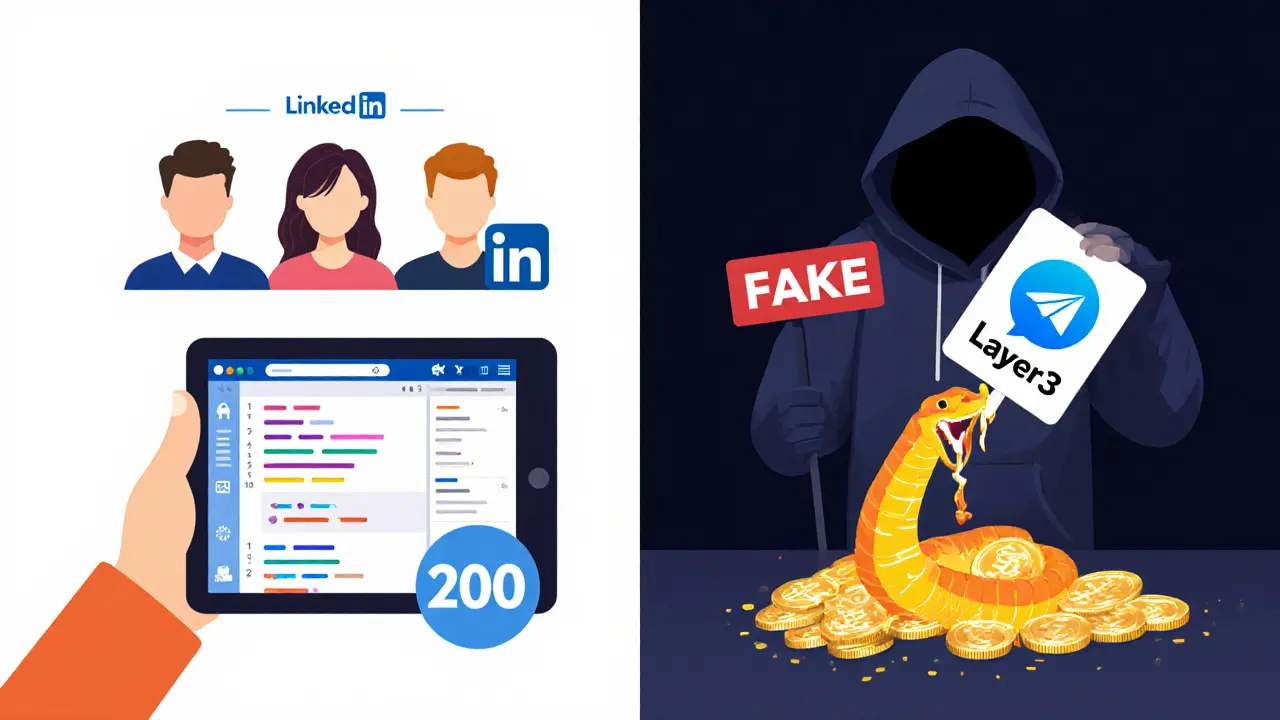
How to Spot a Fake Airdrop
Here’s how to tell if an airdrop is real or fake:
- Real: You’re invited based on past on-chain activity-like holding CryptoPunks or trading on Uniswap. No money changes hands.
- Fake: You’re told to send crypto, pay a gas fee, or enter your seed phrase to “unlock” your tokens.
- Real: The project has a Twitter/X account with 50k+ followers, verified badge, and regular updates.
- Fake: The account was created last week, has 200 followers, and posts only screenshots of fake token prices.
- Real: You can find the token contract on Etherscan with verified code and no mint function.
- Fake: The contract has a mint function that lets anyone create unlimited tokens.
One of the biggest scams in 2024 was the “NFTX Airdrop 2025” fraud. Over 12,000 people lost money because they thought they were signing up for a free token. They ended up approving a transaction that gave scammers full access to their wallets. The scammers drained their ETH, NFTs, and even stablecoins. Don’t be the next statistic.
What You Should Do Right Now
If you’re serious about NFTP, here’s what to do:
- Stop clicking random links. If you got a DM or a tweet saying “NFTP airdrop live-claim now!”-don’t click it. Block the account.
- Search for official channels. Type “NFT TOKEN PILOT official website” into Google. If the first result is a Medium post or a Telegram group, that’s not official.
- Check blockchain explorers. Go to Etherscan.io and search for “NFTP.” If nothing shows up, it doesn’t exist on Ethereum. Try PolygonScan and BscScan too.
- Look for team members. If the project has a team, their LinkedIn profiles should be public. If you can’t find them, assume it’s anonymous-and risky.
- Wait for a public announcement. Real projects don’t hide. They launch on CoinGecko, CoinMarketCap, and major crypto news sites like CoinDesk or The Block.
There’s a good chance NFTP is either still in early development or a complete fabrication. Either way, you don’t need to rush. The best airdrops are the ones you don’t chase-you’re invited to because you were already part of the ecosystem.
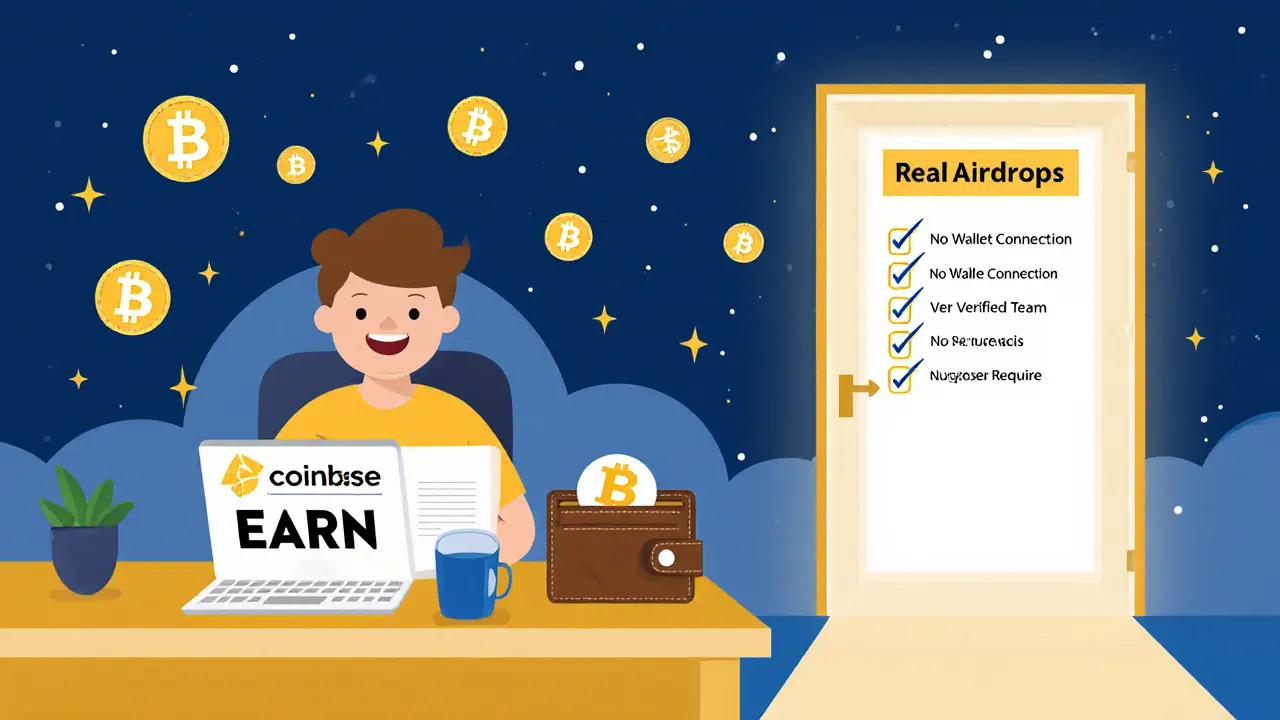
What to Do Instead
If you want to earn free tokens in 2025, here are safer alternatives:
- Use Coinbase Earn to complete short lessons and get free crypto-no wallet connection needed.
- Hold Uniswap (UNI) or Arbitrum (ARB) tokens-they’ve done multiple airdrops to long-term holders.
- Participate in Layer 2 ecosystems like zkSync or Base. They reward early users with tokens when they launch.
- Join verified NFT communities like Bored Ape Yacht Club or World of Women. They occasionally reward holders with utility tokens.
These aren’t guaranteed, but they’re backed by real companies with real teams. No one’s asking you to send them money.
Final Warning
The crypto space thrives on hype. Airdrops are exciting because they feel like free money. But the moment someone asks you to pay anything to get a token, it’s no longer an airdrop-it’s a robbery. NFTP might turn into something real one day. But if it does, it won’t come through a shady Telegram bot or a Google ad. It’ll come from a website with a domain, a team, and a track record.
Until then, don’t touch it. Don’t connect your wallet. Don’t share your seed phrase. And don’t fall for the rush. The best way to win in crypto isn’t to chase every new token-it’s to protect what you already have.
Is the NFTP airdrop real?
As of November 2025, there is no verified evidence that the NFTP airdrop by NFT TOKEN PILOT exists. No official website, contract address, team members, or social media presence has been confirmed. Most claims about it are scams designed to steal crypto or private keys.
How do I claim NFTP tokens?
You cannot claim NFTP tokens because there is no official claim portal or smart contract. Any website or link asking you to connect your wallet or send cryptocurrency to claim NFTP is a phishing scam. Do not interact with it.
What wallet should I use for NFTP?
You should not connect any wallet to NFTP-related sites. If the project were legitimate, it would not ask you to connect your wallet before a public announcement. Use a separate wallet for testing new projects-but only after verifying the project’s legitimacy through multiple trusted sources.
Has NFT TOKEN PILOT launched any other projects?
There is no public record of NFT TOKEN PILOT launching any previous projects. No GitHub repositories, no past airdrops, no media coverage. This lack of history makes NFTP even more suspicious. Legitimate teams usually have a track record.
When will the NFTP airdrop happen?
There is no confirmed date for the NFTP airdrop because the project has not been officially launched. Any dates you see online-like “claim by Nov 10, 2025”-are fabricated to create urgency and pressure you into acting without thinking.
Can I earn NFTP by holding other NFTs?
No. There is no official list of eligible NFTs for NFTP. Projects that do this-like the 2023 Blur airdrop-publish exact NFT collections and snapshot dates. NFTP has published nothing. Any claim that holding a specific NFT will earn you NFTP is false.
